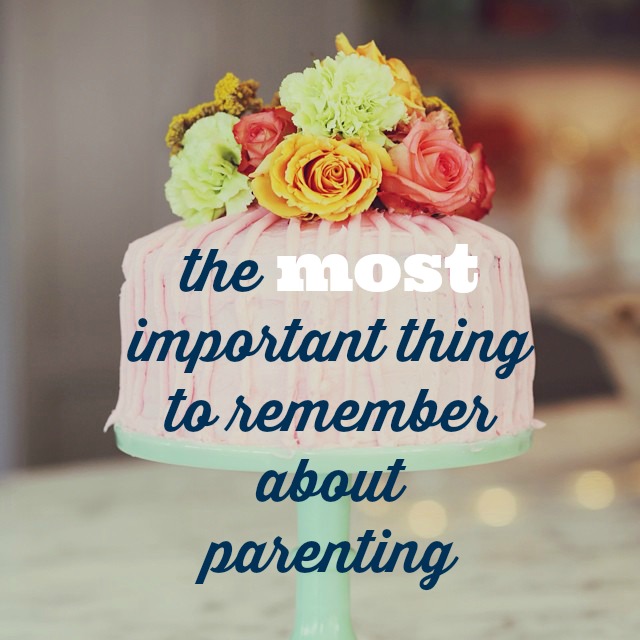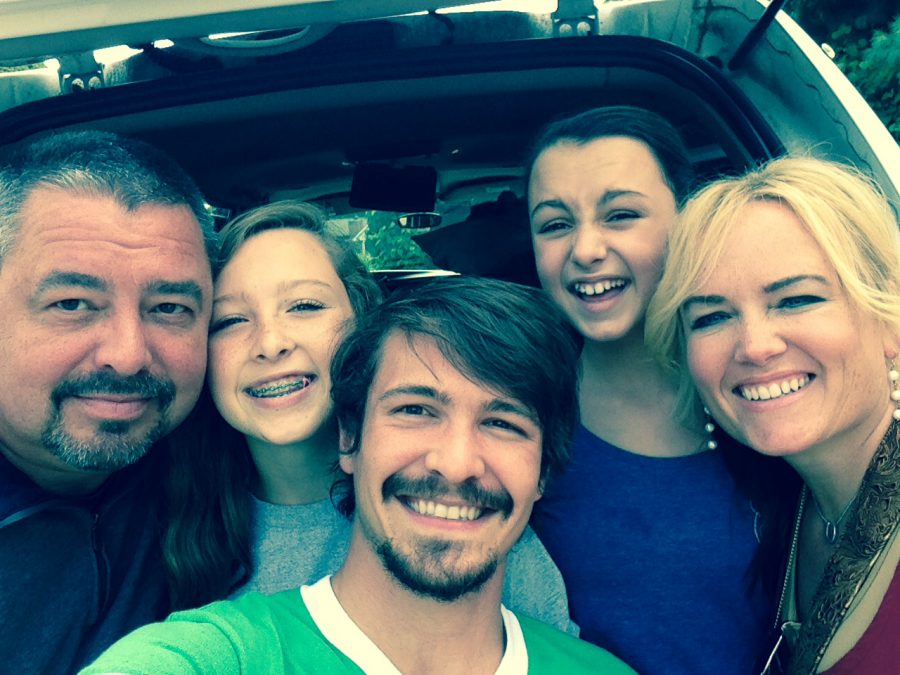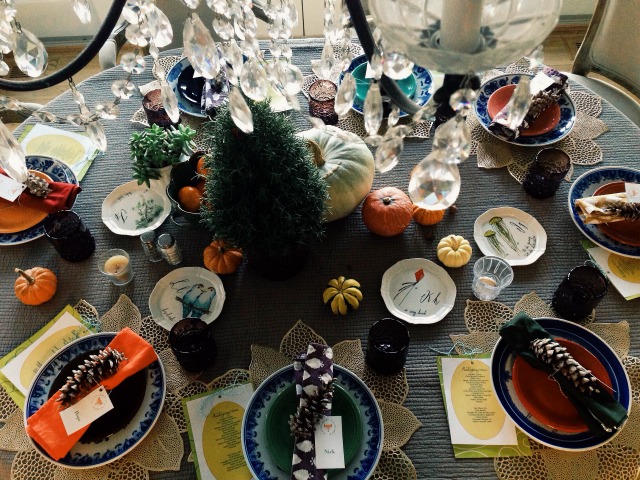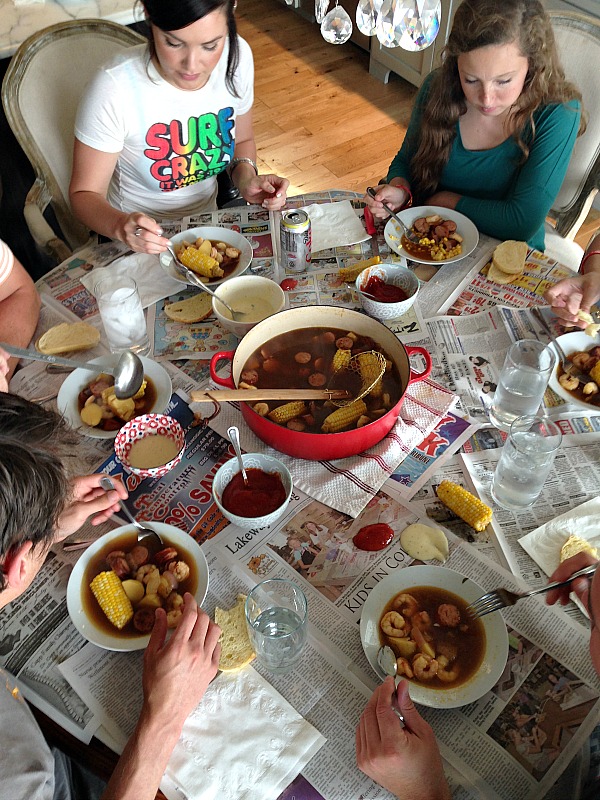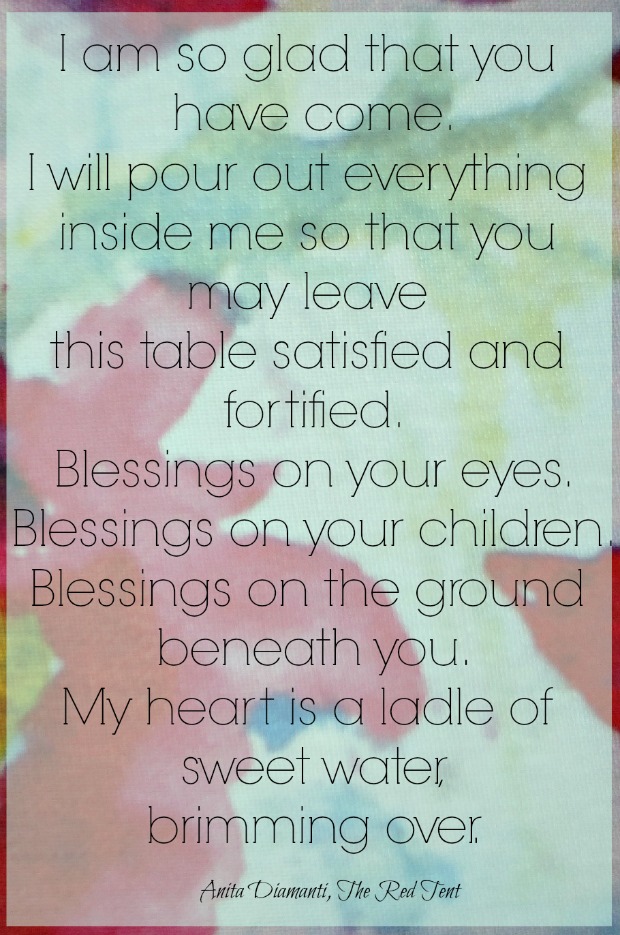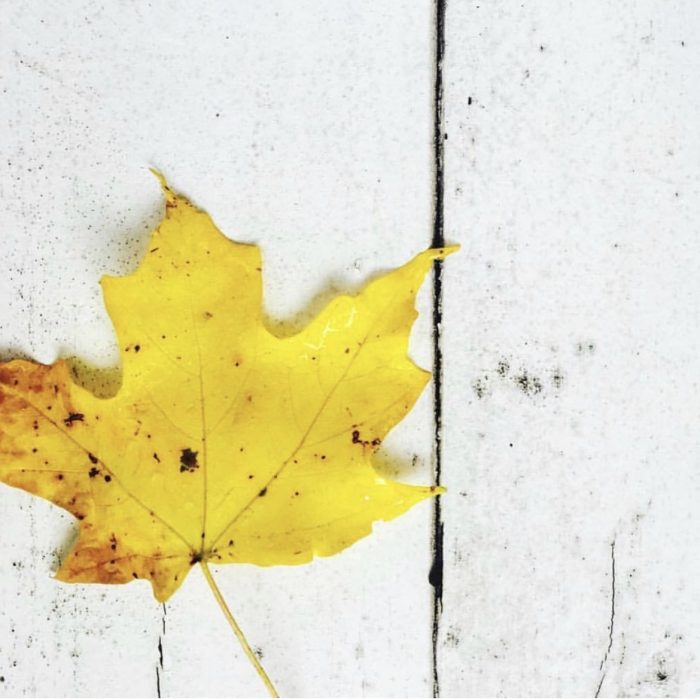
As you know, we have been through kind of a strange time as a nation and as a culture, and it has given us a lot to process and work on and think about.
There are the people who process change and hardship and suffering by over performing and people who process by under performing. Both ways end up at the same place.
I’m am an over performer, so I come out of the gates like, “I’m going to learn everything. It’s going to be great. I’m not going to let quarantine get me down.” Then about four weeks later, I’m crying on the floor. And then there are those who underperform. They start their crying on the floor and then they slowly get up and start to function.
One thing that I’ve noticed about myself over the last couple of weeks is I’ve been letting the division get to me. We say to ourselves in our mind that there are these camps of people. The truth of the matter is most of us are somewhere in the middle, but what can appear to happen is this divide, and you can tell who’s on one side and who’s on the other.
You’re supposed to hate all the people on the other side of whatever your camp is, right?
We tend to villainize the people who aren’t in our camp.
I started to see this huge divide and think,”Oh my gosh, we’re so divided. People can’t see the nuance. We’re just so divided. We are pitting people against one or the other.”Then I realized, wait, this is how I see it because this is how I choose to see it.
When I made that revelation for myself, it helped me kind of step back and think,”People are probably not just one way or the other. They’re probably nuanced like I am.”
I don’t feel like I know everything about everything. And they probably don’t either.
It kind of drove the point home that I’ve been learning for the last 10 years, which is
You always find what you’re looking for.
What I mean is if you look at your spouse, and your story in your head about your spouse is that they don’t contribute and they’re not supportive, you will look for evidence for your story and you will find it. You will find LOTS of evidence for your story, which will confirm your story.
Your brain likes to confirm its story and that’s okay, except ask yourself, “Do I like what I’m finding?” Because if I don’t like what I’m finding, I probably need to look a little closer, see a little more nuance, see both sides of the story.
Those of you who have that story about your spouse, you could probably tell another story about them. My spouse is supportive. My spouse goes to work every day and he takes care of our family and he loves us, right? You could tell both stories.
Which story helps you like the way you show up?
If your story is he’s not supportive, he doesn’t help, he doesn’t love me, and he doesn’t support me, then you’re going to show up pretty needy and pretty defensive. But there’s always another side to the story.
If you live from the other side of the story, you’re going to probably give him the benefit of the doubt, and show up with more curiosity and compassion and love. That’s probably where you want to be living your life, I would guess.
The same thing is true when you see somebody on the internet that you don’t agree with.
Can we hold the same space for people?
Can we see that there are two stories?
Can we see that telling ourselves everybody who thinks THAT way is awful and I don’t like THOSE humans, pretty much Xs out about 50% of the humans!?
I found myself going down into this place where I would do that. I would think, “Well, they’re one of THOSE people and I don’t agree with that,” and I would kind of discount them and lump them into this group of people that I don’t really respect or agree with.
Can we hold space for each other?
Can we at least acknowledge that there’s another part to the story, and that person who’s really worried about going out might have a sick child, and it feels so personal, and it feels like everybody that’s recommending that we do something different is against her child.
Can we just be curious about the people who are on the other side?
This is what I have ask of myself, because you will always find what you’re looking for, and if your brain is looking for division and looking for people to be wrong and looking for the negative side of things, you will always find it.
Then you have to ask yourself, do I like living from the place where I think half the world is wrong and awful. I really don’t. I really like holding a bit more curiosity and love and respect for people who don’t see it the way I do. So it’s been a good exercise for me, honestly, because I found myself saying, “Oh, everybody’s crazy. The world’s going crazy.”
It does feel like the world’s going crazy, but can we hold space for people and can we just be a little bit curious? Can we step back just a little bit and say, “I can kind of see why that person with that upbringing from that part of the country could see it that way?”
Where in your life are you doing this? Are you doing it in your marriage? Are you doing it with one of your kids? You may have a story in your mind about one of your kids and everything they do just confirms the story that you already have. I would beg you to ask yourself, “What’s the other side of that story?” What if more of the time you lived from the other side of that story?
We’re all doing this in different parts of our lives, in different settings, in our marriage and our families, and in the culture. It just makes us better humans to be willing to HONOR other people and the way they think, even if it’s not the same as us, and to try to find some understanding.
It makes us better humans to listen a little bit more to their side. Ask, “I wonder why they think that,” or “I wonder why they so quickly go to that.”
I’ve really been working on this. This year has been difficult for us in a lot of ways, and we have the choice of how we want to see it.
Even if I looked at last year and all the different things that have happened, I could think,”Oh my gosh, God hates us. This has been hard. Why do bad things happen to us? Why has it been like this?”I could look at it that way, but when I look at it that way, I feel like a victim.
I’m not a victim. I don’t want to feel like a victim.
The other choice I have is,”Wow, look at what has happened FOR me. Look at the chance that I have gotten to see things differently, to really grow, to accept the suffering and challenge, and let it be my teacher and let it change me in the ways that it can.”
What if we looked at it like that?
We have a pandemic in front of us. You can tell yourself a story about that. And you live a certain way, according to that story. Remember though, there’s another side to the story.
I do believe that the pandemic of fear is real, and when we live in fear, do we like the way we show up? It’s okay to do it either way, but I’m just asking us, asking myself, to step back from all of our dogma and say, “Is believing this story helping me show up the way I want to?”
It’s a question that’s worth asking, because if it didn’t matter how you looked at it then we would all see it the same way, and obviously we don’t all see it the same way.
We don’t see the pandemic the same way. We don’t see marriage the same way. We don’t see suffering the same way, right? What that tells me is that the way you see something really becomes your story about it, and you can choose how you see it.
Sometimes we look at a circumstance like a pandemic and go,”Well, there’s no other way to see it, except that this is terrible and we’re all going to die. We should stay in our houses forever.” That’s one way to see it.
We have to ask ourselves,”When I look at it that way, do I like the way I show up? Do I like the person that story makes me into?” It’s really worth asking, “How do I want to see this? How do I want to look at life? How do I want to look at my relationships?”
You might be saying to yourself,”Well, you’re just looking at it with rose colored glasses.”Possibly, but what I always ask myself is,”When I tell myself this story and live from this story, is that the best, highest version of myself? Am I living from love? Am I giving people grace and the benefit of the doubt and all the things that I would want people to give me?”A lot of times I’m not.
It’s been a really good time of learning and growth. That’s what I think is so cool about collective hardship, collective suffering. We talk about this a lot at my gym, voluntary hardship.
Sometimes we sign up for things that are hard and we, in our minds, tell ourselves, “No, this is good for me. It’s good for me to challenge myself. It’s good for me to deny myself. This is going to teach me so much.”
Then we have the involuntary hardship, involuntary suffering. Sometimes we don’t change our mindset about it and decide how we want to think about it, and then we get into this weird victim mode where everything’s happening to me and i’ts all wrong. Woe is me!
I just find that I like the way I show up when I truly believe that God is doing this for me. This is for me, not because I need to be punished or did something wrong. We’re all sinners. We all need to repent. We all need God’s grace, but coming from the aspect of this is for us. He’s doing this for us. This is for our good.
He will turn every situation into good.
Is there any harm in believing that? How does it help us show up when we believe that?
Especially in the divide that I see in my own life, the divide that I see in my own family sometimes, the divide that I see in my own town, in my own Facebook feed, it’s worth considering giving people a little bit of space and being curious about what makes them tick. It’s worth being curious about how we are interpreting things, and how we are seeing things.
Do we like ourselves when we interpret things that way, and when we show up the way we are showing up? Because we always find what we are looking for.



